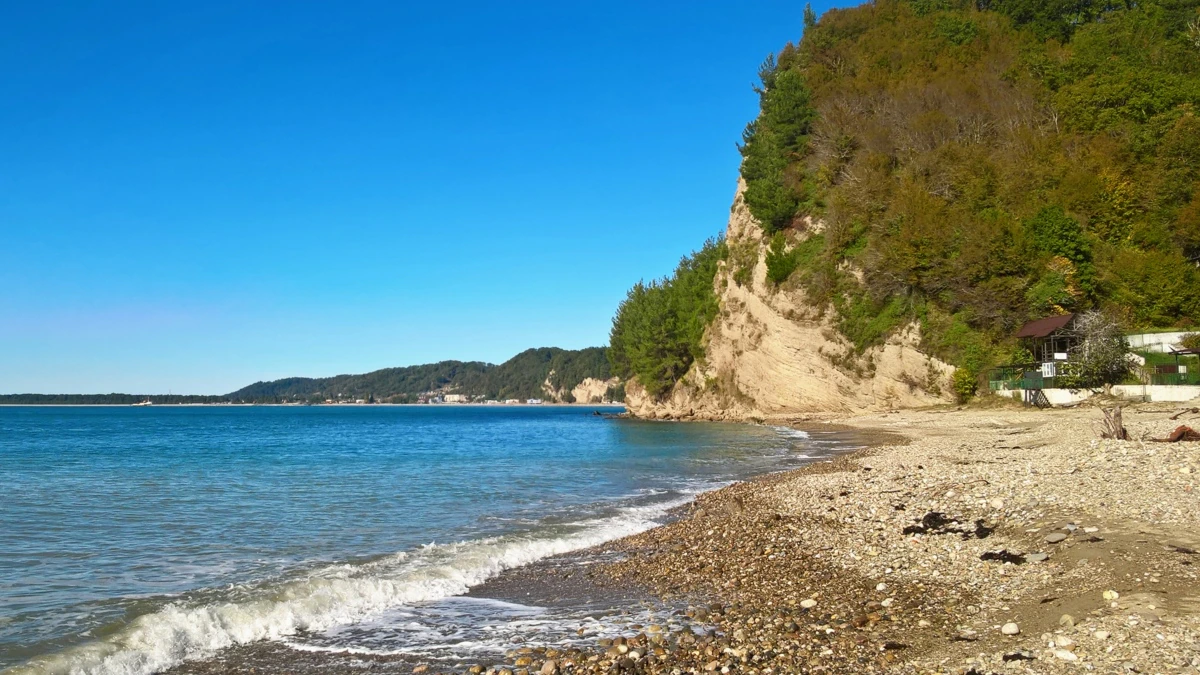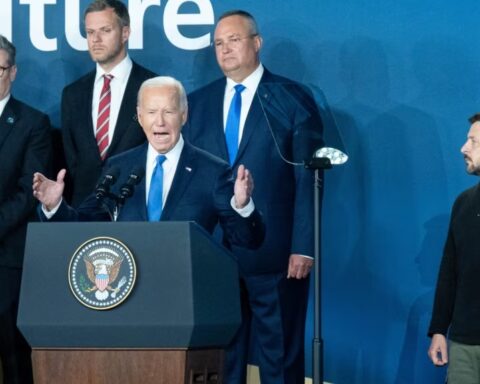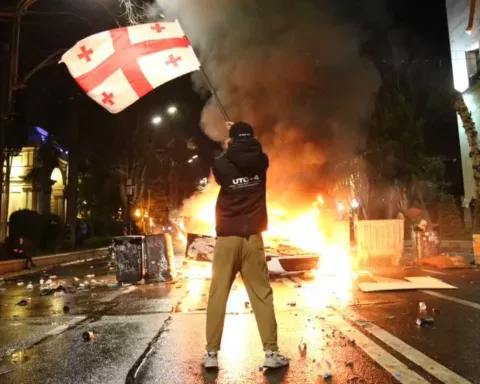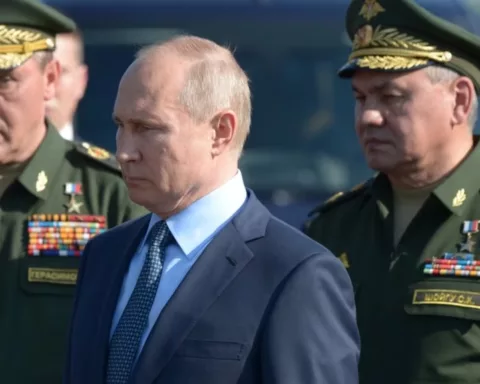The looming transfer of a swathe of Abkhaz coastal land to Moscow is proving deeply controversial amid the backdrop of Russia’s invasion of Ukraine.
Georgian President Salome Zurabishvili has condemned moves by leadership of the breakaway region of Abkhazia to transfer ownership of a sprawling coastal property to Russia. The Georgian leader called the step a “a form of annexation” of Georgian land in a tweet on July 26.
The coastal property includes several historic buildings and around 180 hectares of forest on a picturesque stretch of Black Sea coastline. The handover agreement was reportedly signed in Moscow in January but only became publicly known in July when Abkhazia’s de facto parliament began discussing it. The deal stipulates that all buildings and structures on the isolated property near Pitsunda be handed to Russia on a 49-year lease.
The handover would be largely symbolic since an earlier agreement made in 1995 gave Russia use of the property indefinitely. But with the backdrop of Russia’s violent takeover of parts of Ukraine, news of a handover of Abkhaz land to Moscow landed like a bombshell in the breakaway region. Russian President Vladimir Putin visited the picturesque stretch of coastline where the property is located in August 2017.
Abkhazia was the scene of a bitter 1992-93 war that ended with its split from Georgia, but international isolation has severely hobbled its development. In August 2008, Russia and Nicaragua formally recognized Abkhazia’s independence and in 2009 Russia established a large military base inside the territory.
The de facto president of Abkhazia, Aslan Bzhania, indicated on July 20 that he had little choice in the handover, telling residents of Tkvarcheli on July 20 that “Russia can live without this property, but can we continue to exist without Russia’s support? That is the real question.” The Abkhaz leader later revealed that Putin “asked me personally to transfer the property to his ownership.”

On July 21, a public meeting with Bzhania descended into chaos as locals of the Gulrifshi district of Abkhazia confronted the Abkhaz leader over the apparently imminent handover of the coastal property.
According to Abkhazia’s “constitution,” land cannot be sold to foreigners, but local experts say the handover would not be considered a sale.
Many Abkhazians see strong links with Moscow as unavoidable. Abkhazia’s economy depends overwhelmingly on tourism from Russia, and some locals fear Tbilisi could attempt to retake Abkhazia by force without the presence of Russian soldiers in the territory.
Sergei Shamba, an Abkhaz politician, referenced the war in Ukraine as a reason to support the transfer of land to Russia, saying, “I doubt anyone is crazy enough to fly warplanes into an area when senior Russian officials are resting in the [Pitsunda property]. This would be an act of aggression not only against Abkhazia, but also against Russia.”
A public poll posted by an Abkhaz news outlet on July 25 showed that 80 percent of respondents were against transferring the coastal land to Russian ownership.






